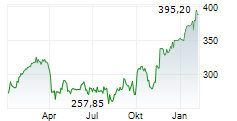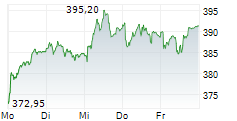
- New TAGS (Temperature-Activated Generation of Signal) technology enables up to 15 targets to be detected simultaneously in a single patient sample on the high throughput molecular diagnostic analysers cobas 5800, 6800 and 8800.
- TAGS has the potential to revolutionise testing for other infectious diseases in the future, by bringing high throughput customised syndromic panel testing to the routine clinical laboratory.
- The first TAGS-based test to be made available, the cobas Respiratory flex, offers fast, efficient detection of up to 12 of the most common respiratory viruses with the flexibility for targeted testing, expediting accurate diagnosis, optimising antimicrobial use and saving time in the lab.
Basel, 24 September 2024 - Roche (SIX: RO, ROG; OTCQX: RHHBY) announced today the launch of the cobas® Respiratory flex test, the first to use Roche's novel and proprietary TAGS (Temperature-Activated Generation of Signal) technology. TAGS technology, developed by Roche scientists, uses multiplex polymerase chain reaction (PCR) testing, combined with colour, temperature and data processing, to identify as many as 15 pathogens in a single PCR test. Typically, PCR tests on a high throughput analyser are able to identify four results in a single test - TAGS technology makes it possible to increase this number to fifteen. This will enable syndromic panel testing on the high throughput molecular diagnostic analysers cobas® 5800, 6800 and 8800, which is especially important when a common group of symptoms can be related to more than one pathogen.
"Many respiratory illnesses share similar symptoms, making them difficult to diagnose. As respiratory outbreaks, combined with growing incidence of antibiotic resistance continue, getting an accurate and timely diagnosis is critical to providing the best care for patients and curbing transmission," said Matt Sause, CEO of Roche Diagnostics. "Using TAGS technology, the cobas Respiratory flex test can help clinicians identify specific respiratory viruses sooner, helping to speed up diagnosis and get the right care to patients."
The cobas Respiratory flex test can detect up to 12 of the most common respiratory viruses, including influenza A, influenza B, Respiratory Syncytial Virus (RSV) and SARS-CoV-2, within a patient sample using a single PCR test. The test also allows clinicians to specify which pathogens to look for using pre-selected targets. With this, clinicians are able to factor in the test setting, season, locality and patient-specific factors. For example, a clinician might use a targeted test in the winter months to find out if a typically healthy adult patient has influenza or SARS-CoV-2 when those particular respiratory viruses are prevalent. Typically, when clinicians assess a certain group of targets first, diagnosis can be delayed if follow-up tests are needed. Through digital reflex, the cobas Respiratory flex test removes that delay by enabling the generation of additional results instantly or within seconds and without having to collect another sample or to run the existing sample again.
Delivering comprehensive results in a single PCR test, the cobas Respiratory flex test avoids the need for multiple test kits. This simplifies laboratory logistics, helping to optimise the use of resources and reduce pressure on labs. The test is now available in countries accepting CE-mark, and multiple countries around the world have initiated their local registrations. The U.S., 510(k) clearance from FDA will follow with submission planned for Q4. Additionally, the TAGS technology has potential across multiple types of pathogens and indications, offering the chance to revolutionise high throughput testing for infectious diseases in future.
TAGS (Temperature-Activated Generation of Signal) technology
Roche's temperature-activated generation of signal (TAGS) technology, is introduced to differentiate up to three targets per fluorescence channel, enabling the detection and differentiation of up to 15 diagnostic results per well - all out of a single test kit. Roche's new TAGS technology overcomes the technical limitations of a typical 4-plex test result in previous solutions, using a novel, proprietary approach. Without having to upgrade hardware or software in existing cobas 5800, 6800 and 8800 systems, labs will immediately be able to deliver fast, accurate, high throughput flexible syndromic multiplex PCR testing to central laboratories.
cobas Respiratory flex test
The cobas Respiratory flex test runs on the cobas 5800, 6800 and 8800 systems. The cobas Respiratory flex test offers qualitative detection and differentiation of Influenza A & B, Respiratory Syncytial Virus (RSV), Adenovirus (AdV), human Metapneumovirus (hMPV), Enterovirus/Rhinovirus (EV/RV), Parainfluenza 1, 2, 3 & 4, Coronavirus (229E, OC43, NL63, HKU1), and SARS-CoV-2 in nasopharyngeal swab specimens from patients with signs and symptoms of respiratory infection in conjunction with clinical and epidemiological risk factors.
Roche's engagement in respiratory diagnostics
The launch of the cobas Respiratory flex test further strengthens Roche's comprehensive portfolio in respiratory diagnostics, which also includes the newly rebranded cobas® eplex system, a world-class solution for multiplex and syndromic testing. This launch also follows recent news that the FDA had granted Emergency Use Authorization for Roche's four-in-one cobas® liat test for SARS-CoV-2, Influenza A/B & RSV enabling rapid, multiplex PCR diagnostic tests to be undertaken in emergency departments, urgent care facilities and physician office labs. Roche remains committed to offering a wide range of diagnostics solutions both for large laboratories and smaller, near-patient settings.
About Roche
Founded in 1896 in Basel, Switzerland, as one of the first industrial manufacturers of branded medicines, Roche has grown into the world's largest biotechnology company and the global leader in in-vitro diagnostics. The company pursues scientific excellence to discover and develop medicines and diagnostics for improving and saving the lives of people around the world. We are a pioneer in personalised healthcare and want to further transform how healthcare is delivered to have an even greater impact. To provide the best care for each person we partner with many stakeholders and combine our strengths in Diagnostics and Pharma with data insights from the clinical practice.
For over 125 years, sustainability has been an integral part of Roche's business. As a science-driven company, our greatest contribution to society is developing innovative medicines and diagnostics that help people live healthier lives. Roche is committed to the Science Based Targets initiative and the Sustainable Markets Initiative to achieve net zero by 2045.
Genentech, in the United States, is a wholly owned member of the Roche Group. Roche is the majority shareholder in Chugai Pharmaceutical, Japan.
For more information, please visit www.roche.com.
All trademarks used or mentioned in this release are protected by law.
Roche Global Media Relations
Phone: +41 61 688 8888 / e-mail: media.relations@roche.com
| Hans Trees, PhD Phone: +41 79 407 72 58 | Sileia Urech Phone: +41 79 935 81 48 |
| Nathalie Altermatt Phone: +41 79 771 05 25 | Lorena Corfas Phone: +34 620 29 25 51 |
| Simon Goldsborough Phone: +44 797 32 72 915 | Karsten Kleine Phone: +41 79 461 86 83 |
| Nina Mählitz Phone: +41 79 327 54 74 | Kirti Pandey Phone: +49 172 6367262 |
| Yvette Petillon Phone: +41 79 961 92 50 | Dr. Rebekka Schnell Phone: +41 79 205 27 03 |
Roche Investor Relations
| Dr. Bruno Eschli Phone: +41 61 68-75284 e-mail: bruno.eschli@roche.com | Dr. Sabine Borngräber Phone: +41 61 68-88027 e-mail: sabine.borngraeber@roche.com (mailto:sabine.borngraeber@roche.com) |
| Dr. Birgit Masjost Phone: +41 61 68-84814 e-mail: birgit.masjost@roche.com |
Investor Relations North America
| Loren Kalm Phone: +1 650 225 3217 e-mail: kalm.loren@gene.com |
Attachment
- 24092024_MR_cobas Respiratory flex test_en (https://ml-eu.globenewswire.com/Resource/Download/6fa89607-47ce-4fc2-8dde-0e342d7561f8)




